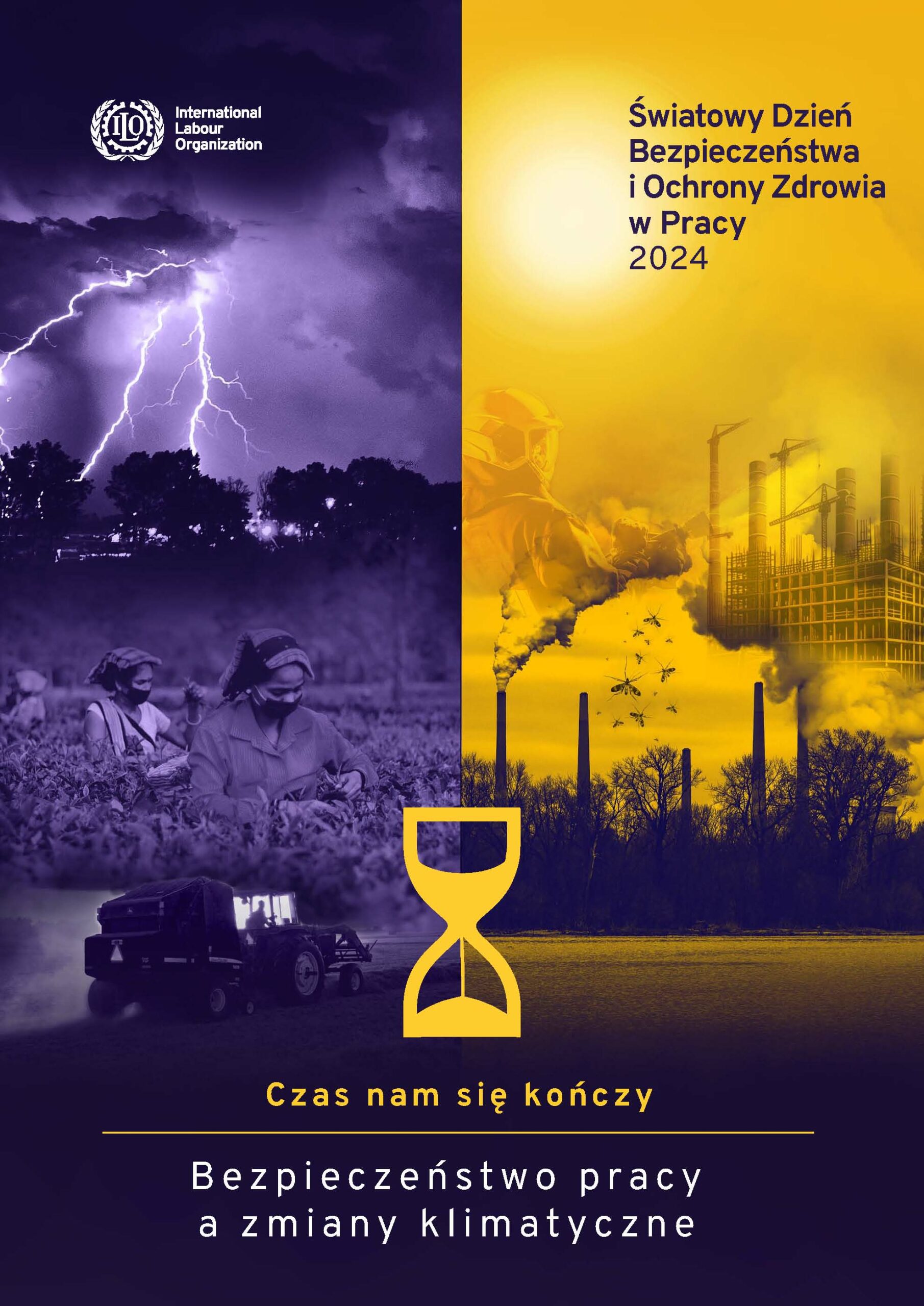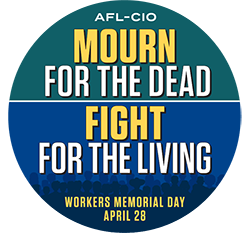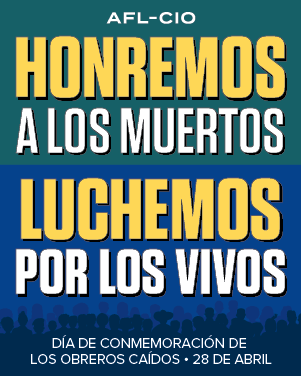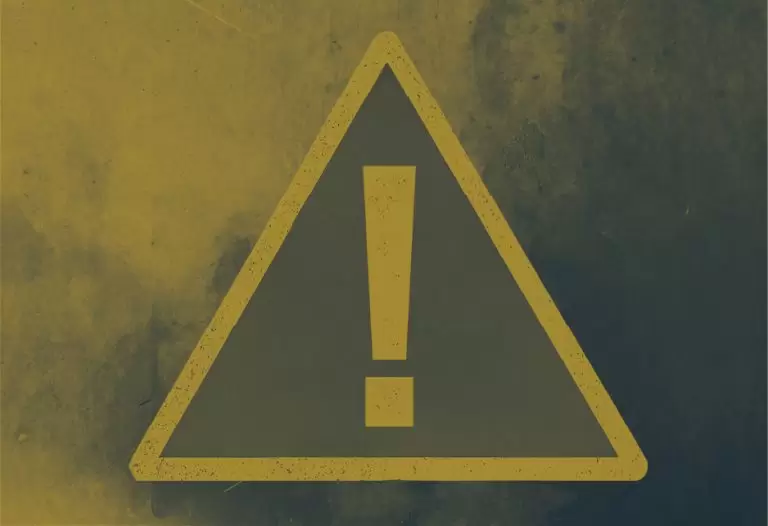37 unions throughout the Asia Pacific region organized various mobilisations, concerted actions, and other activities to support the adoption of workplace health and safety as a fundamental worker right. This was in response to BWI’s call to its affiliates to push governments and employers to implement the said right as it marked the 2023 International Workers’ Memorial Day. The unions in India, Nepal, Cambodia, Bangladesh, Malaysia, Sri Lanka, Pakistan, Indonesia, Myanmar, South Korea, and the Philippines organised demonstrations, held meetings to raise awareness on workplace safety, and distributed free personal protective equipment (PPE). In other places, unions and the employers collaborated on joint actions to reaffirm their commitment to upholding safe and healthy working conditions.
In Nepal, the BWI-Nepal Affiliates Committee (BWI-NAC) organised a campaign action at a construction site in Bhaktapur. Crecentia Mofokeng, BWI Regional Representative for Africa-MENA, joined the activity. She was in Nepal for the Homenet International Congress.

In South India, the TKTMS organised a march that culminated in a town hall meeting attended by construction industry employers’ representatives. The INCWF sponsored a health and safety training at two cement plants in the state of Karnataka. At the same time, the Rajasthan state’s RPKNMS and AHBWU held popular activities to raise OSH awareness among stone quarry employees. Elsewhere in India, BWI affiliates TCTU, AIKTMS, DANMU, MAMU, NMPS, CFBWU, OKKS, OFMFPWU, RWO, INBCWF, SGEU, PMLU, AHPWDIPHCWU, CLU, HKMP, BMS, BMS Gujarat, BNKMU, UPGMS, and KSCWCU also reported IWMD-themed events.
For its part, the ACE-EU in Pakistan convened a joint training with employer representatives to promote OSH as a fundamental and implementable right of workers., while the PFBWW called for a workers’ meeting at the IFI-funded Tarbela Dam infrastructure project and the BWF led awareness activities in the brick kiln industry.
 Meanwhile, health and safety rallies and meetings, led by BBWWF and BSBWWF, dominated the marking of the IWMD in Sri Lanka.
Meanwhile, health and safety rallies and meetings, led by BBWWF and BSBWWF, dominated the marking of the IWMD in Sri Lanka.
The NUBCW organised a legal and advocacy course in the Philippines to lobby for the implementation of OHS laws in the country. In addition, the NUBCW held an anti-sexual harassment training and lecture for Engineering Equipment Incorporated unions, as well as their human resource professionals and workers.
The SERBUK in Indonesia and the BWTUC in Cambodia honoured the day with a series of campaign actions and mass mobilisations. They asked their respective governments to prioritise workers’ health and safety and their right to safe workplaces.
Finally, Malaysia’s UFES, TEUPM, and STIEU, as well as Myanmar’s BWFM, continued OSH campaigns to raise

 The AFL-CIO’s Workers Memorial Day web page is now live
The AFL-CIO’s Workers Memorial Day web page is now live





 Meanwhile, health and safety rallies and meetings, led by BBWWF and BSBWWF, dominated the marking of the IWMD in Sri Lanka.
Meanwhile, health and safety rallies and meetings, led by BBWWF and BSBWWF, dominated the marking of the IWMD in Sri Lanka.